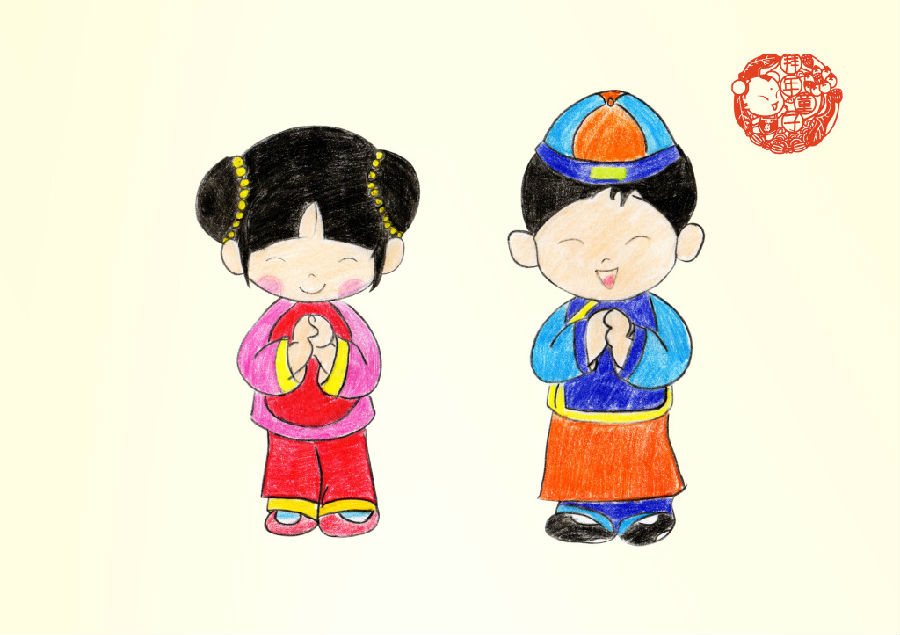(单词翻译:单击)

Chinese Bainian
中国人的拜年
Early on the first morning of the Spring Festival,families set out to pay a lunar New Year visit to each other after the members of each family greet each other with lunar New Year wishes. This is called in Chinese Bainian, meaning paying the Spring Festival visits and greetings. Usually,the youngpay a visit to the old while the people about the same age share equal greetings;then,visits are paid in sequence to relatives of close kinship,relations ,neighbors, teachers, friends and colleagues. To kowtow used to be one of the rites involved in paying the spring Festival visits,but now it is replaced by the Spring festival greetings with best wishes, for instance,wishes for a good fortune. When the junior pay the senior the Spring Festival visit, the latter are supposed to give the former some money as a gift,which is known "money for an added age."
在春节的第一天早上,去拜年,每个成员家庭成员互相问候与送上农历新年的祝愿。在中国,这就是所谓的拜年,这意味着春节走访和问候。通常情况下,年轻的拜访年老的,而年龄相仿的互相问候;然后,拜访的顺序是有密切的血缘关系的亲戚,爱人,邻居,老师,朋友和同事。磕头是春节拜访仪式之一,但现在却换成了春节的问候与美好的祝愿,例如,祝愿发财。当未成年人拜访年长者时,年长者应该给未成年人一些钱作为礼物,这被称为“压岁钱”。


